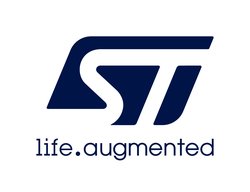NUCLEO-F429ZI
STM32 Nucleo-144 development board with STM32F429ZIT6 MCU, supports Arduino, ST Zio and morpho connectivity
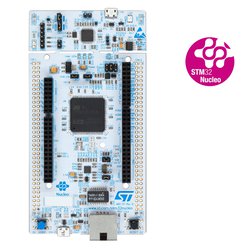
Overview¶
The STM32 Nucleo-144 board provides an affordable and flexible way for users to try out new concepts and build prototypes with the STM32 microcontroller, choosing from the various combinations of performance, power consumption and features. The ST Zio connector, which is an extension of Arduino™ Uno V3, provides access to more peripherals and ST morpho headers make it easy to expand the functionality of the Nucleo open development platform with a wide choice of specialized shields. The STM32 Nucleo-144 board does not require any separate probe, as it integrates the ST-LINK/V2-1 debugger/programmer and it comes with the STM32 comprehensive software HAL library, together with various packaged software examples, , as well as a direct access to the ARM®mbed™online resources.
Microcontroller features¶
- STM32F429ZIT6 in LQFP144 package
- ARM®32-bit Cortex®-M4 CPU with FPU
- 180 MHz max CPU frequency
- VDD from 1.8 V to 3.6 V
- 2048 KB Flash
- 256+4 KB SRAM, including 64 KB of CCM (core couple memory) data RAM
- GPIOs (114) with external interrupt capability
- 16-stream DMA controller with FIFOs and burst support
- 12-bit ADCs with 24 channels (3)
- 12-bit DAC channels (2)
- USART/UART (4)
- I2C (3)
- SPI (6)
- Advanced-control Timer (2)
- General Purpose Timers (10)
- Watchdog Timers (2)
- CAN 2.0B active (2)
- SAI
- SDIO
- Random Generator (TRNG for HW entropy)
- USB 2.0 OTG HS
- USB 2.0 OTG FS
- Camera interface
- Ethernet
- LCD-TFT
Nucleo features¶
- Two types of extension resources
- Arduino Uno Revision 3 connectivity
- STMicroelectronics Morpho extension pin headers for full access to all STM32 I/Os
- On-board ST-LINK/V2-1 debugger/programmer with SWD connector
- Selection-mode switch to use the kit as a standalone ST-LINK/V2-1
- Flexible board power supply
- USB VBUS or external source (3.3 V, 5 V, 7 - 12 V)
- Power management access point
- Three User LEDs
- Two push buttons: USER and RESET
- USB re-enumeration capability: three different interfaces supported on USB
- Virtual Com port
- Mass storage (USB Disk drive) for drag'n'drop programming
- Debug port
- Ethernet 10/100Mbps
- USART
Board pinout¶
Pins Legend¶
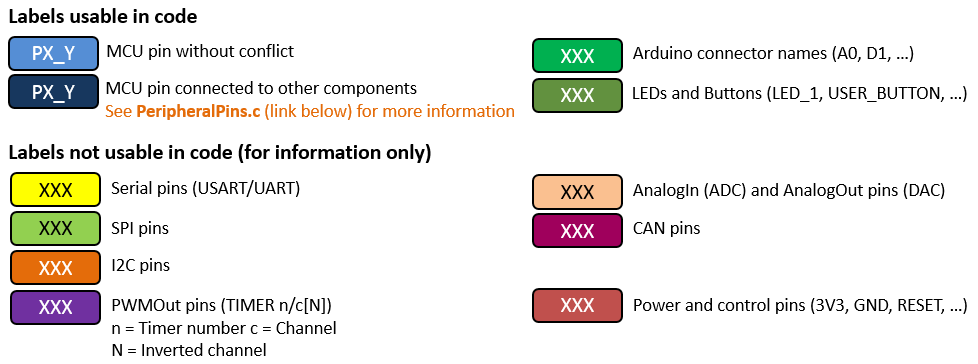
You can find more details on the available pins and labels in the PeripheralPins.c and PinNames.h files.
These files can be found in:
- ARMmbed/mbed-os repository on GitHub (up-to-date version, used with mbed CLI commands)
- mbed-dev library in developer.mbed.org (source files of the mbed library used on mbed compiler IDE)
Zio and Arduino-compatible headers¶
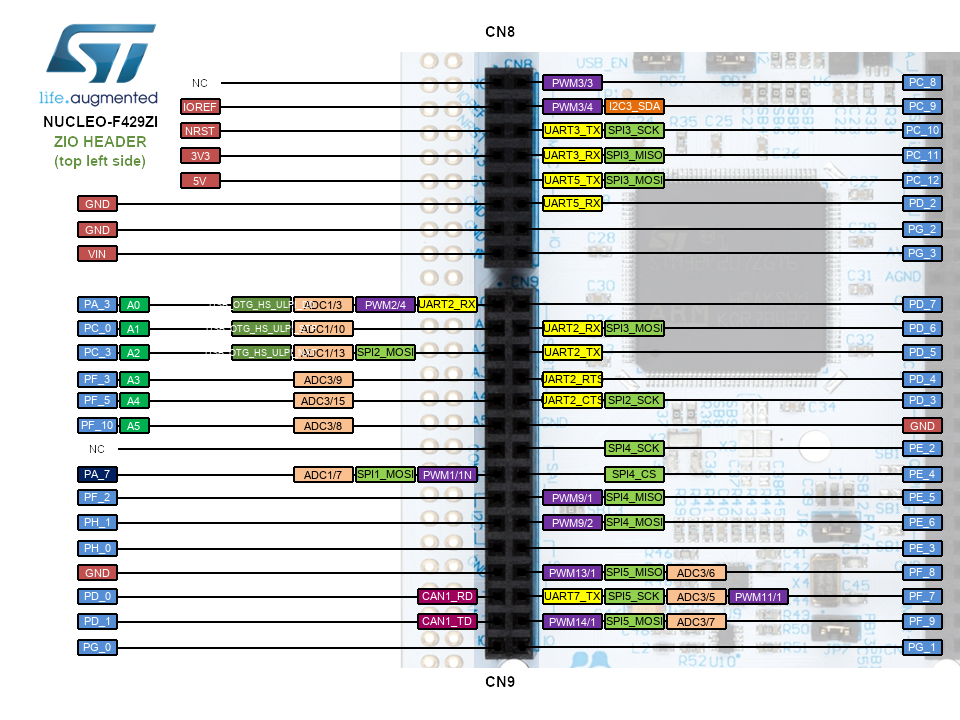
ETHERNET and SPI simultaneous use
There is a conflict between Ethernet and SPI Arduino D11 pins
Please read carefully the wiki page
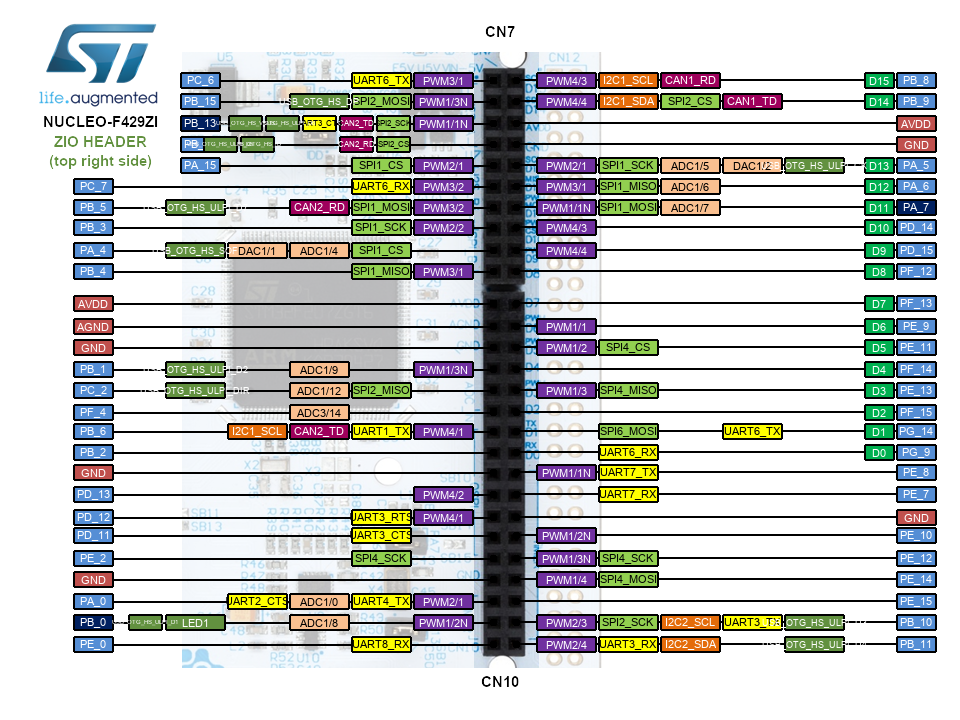
CN11 CN12 headers¶
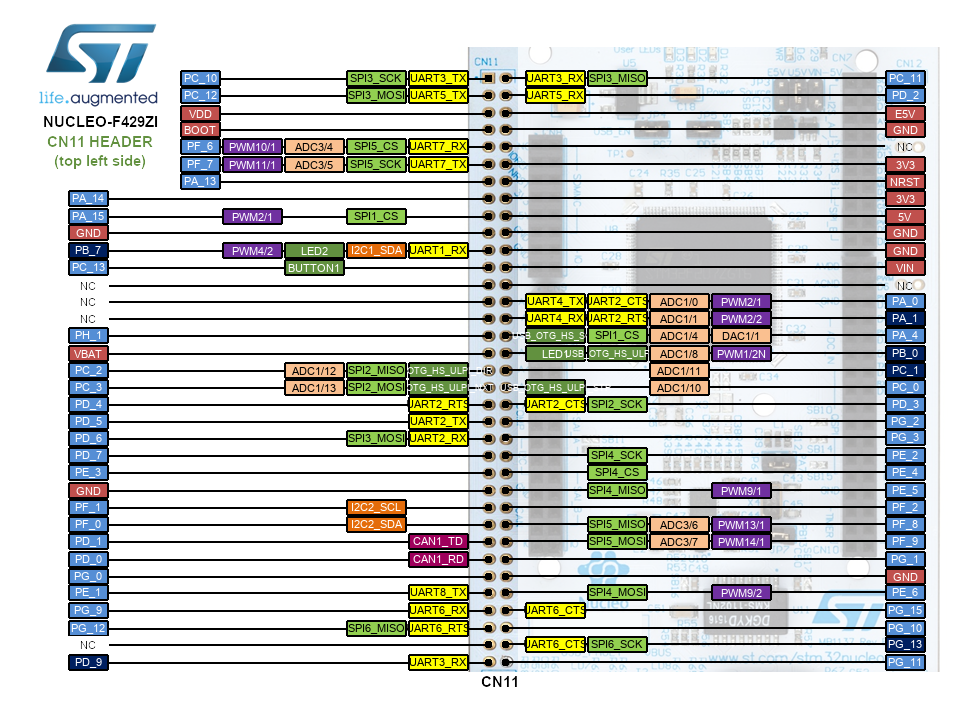
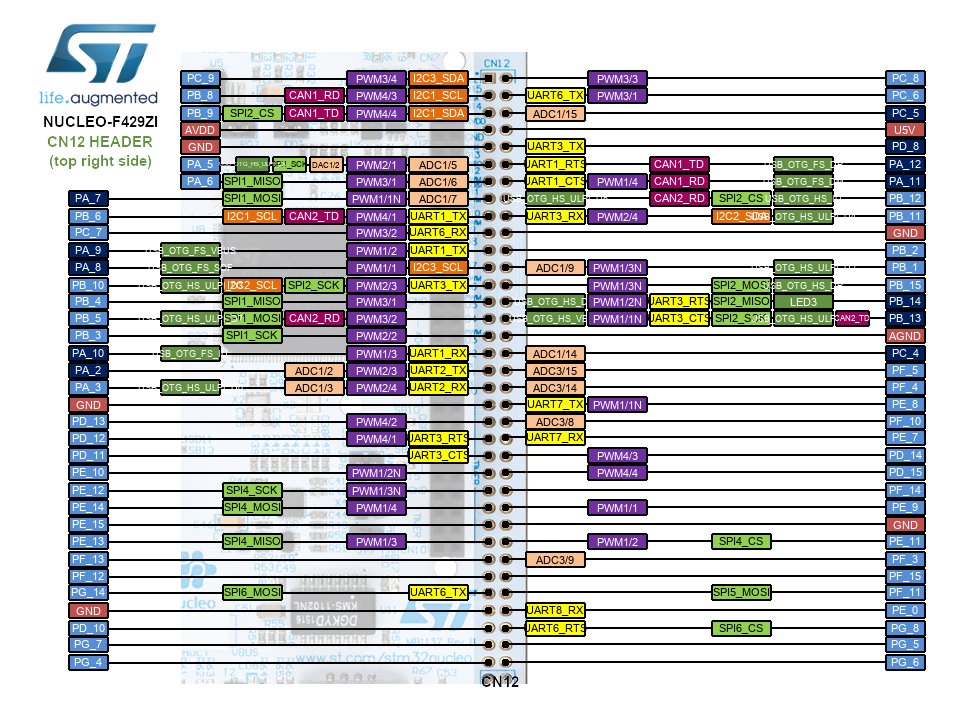
Getting started¶
This video shows how to get started with ARM mbed Integrated Development Environment using STM32 Nucleo platform:
Nucleo ST-LINK/V2 driver installation and firmware upgrade
Supported shields¶
ST X-NUCLEO boards¶
Other Non-ST boards¶
See here.
Technical references¶
For more information, please refer to:
Known limitations¶
The following section describes known limitations of the platform. Note that general issues are tracked into the mbed repository available on GitHub.
- Conflict between Ethernet and SPI pins on Arduino D11
See HERE
Tips and Tricks¶
Find more information in ST WIKI pages.
You need to log in to post a discussion
Discussion topics
| Topic | Replies | Last post |
|---|---|---|
| CDC, STM, USB USB CDC Required Settings | 0 |
01 Oct 2019
by
|
| ip address is not showing | STM32F429ZI nucleo | 2 |
20 Oct 2017
by
|
| ethernet, STM32F429 When is Ethernet going to be supported on the F429? | 4 |
13 Dec 2016
by
|
Questions
7 years, 5 months ago


